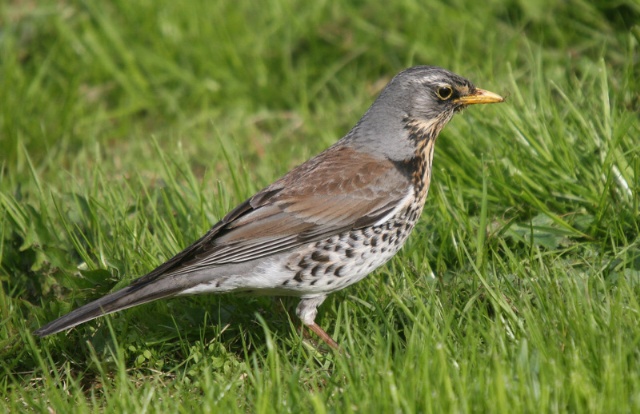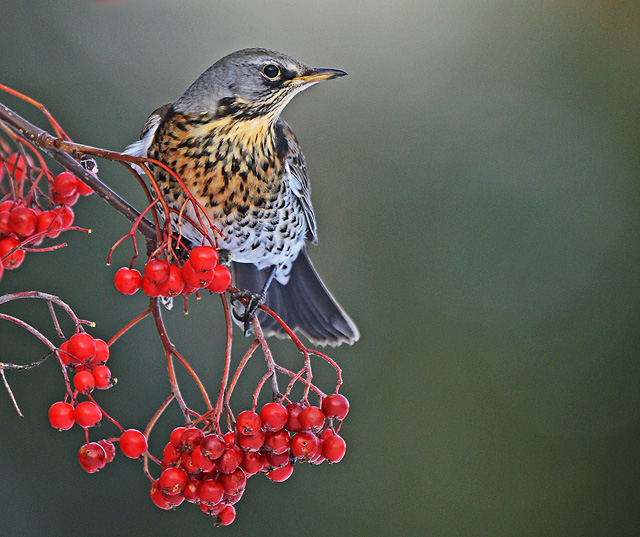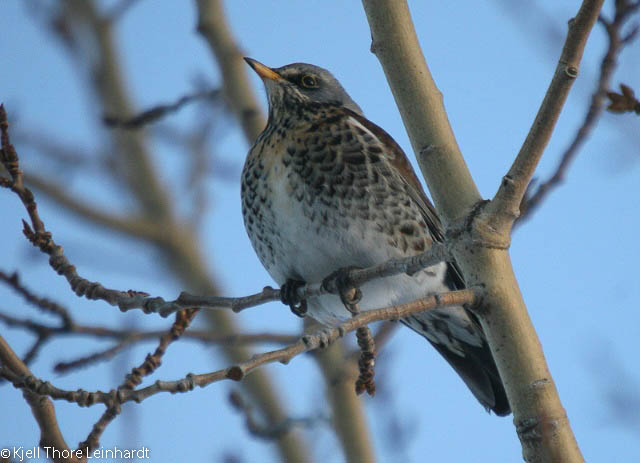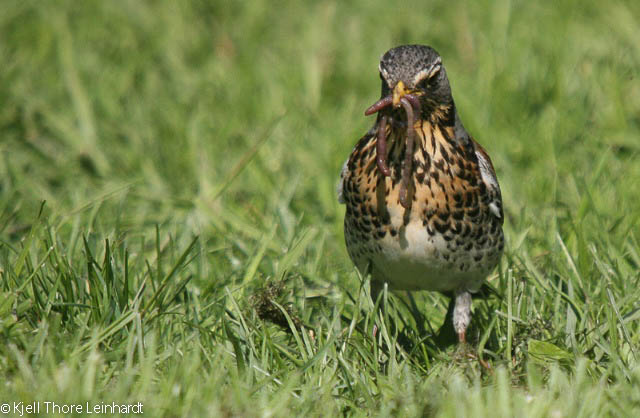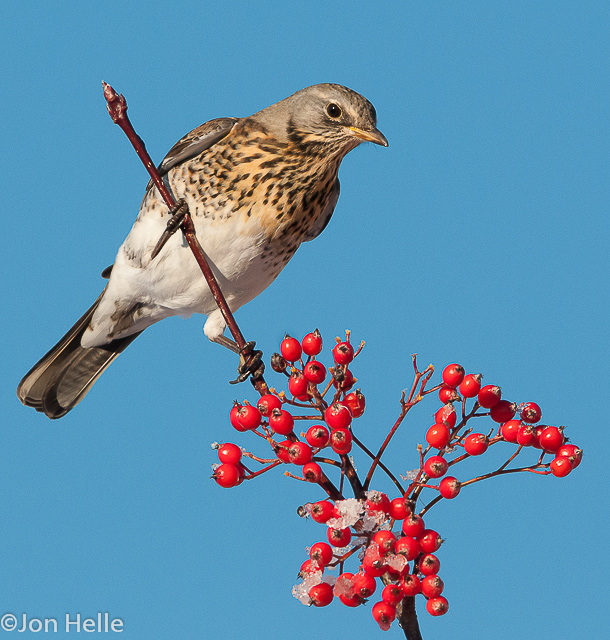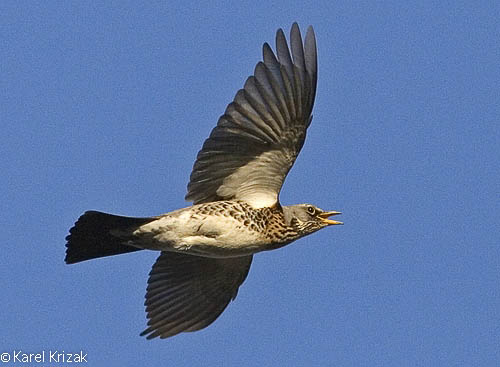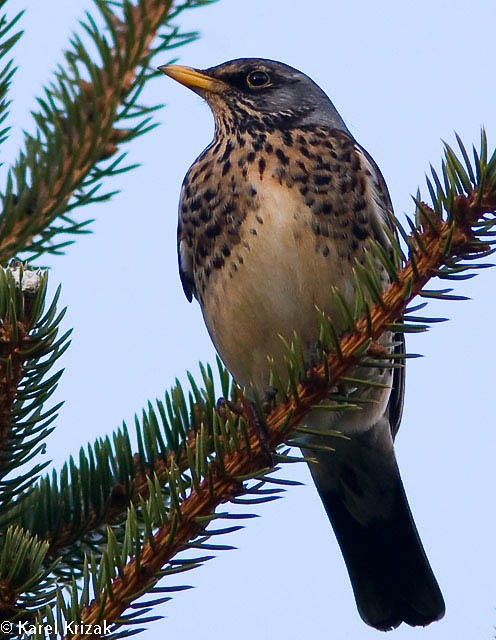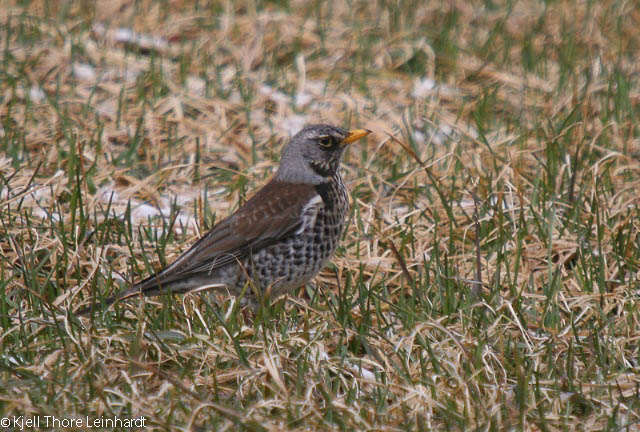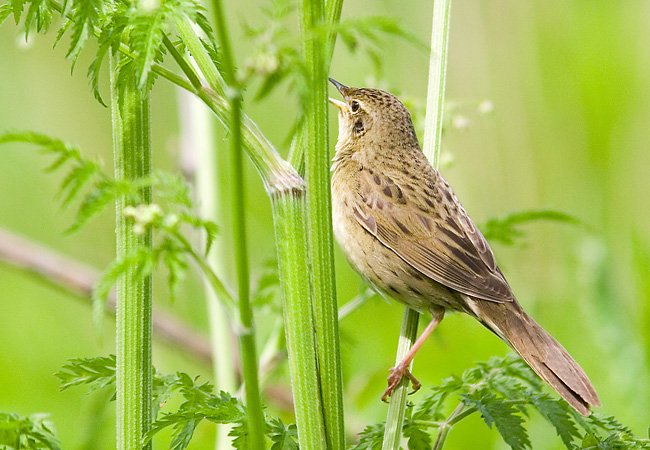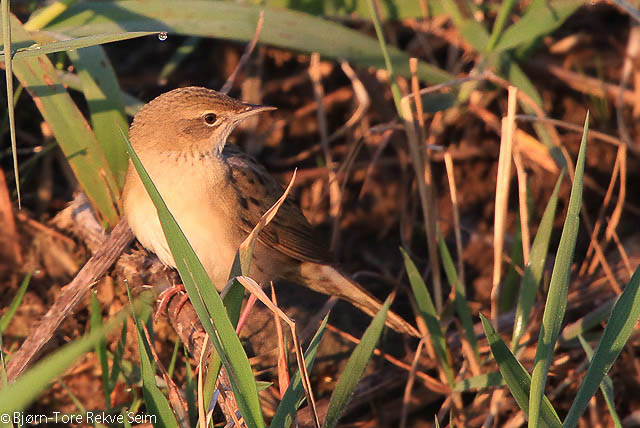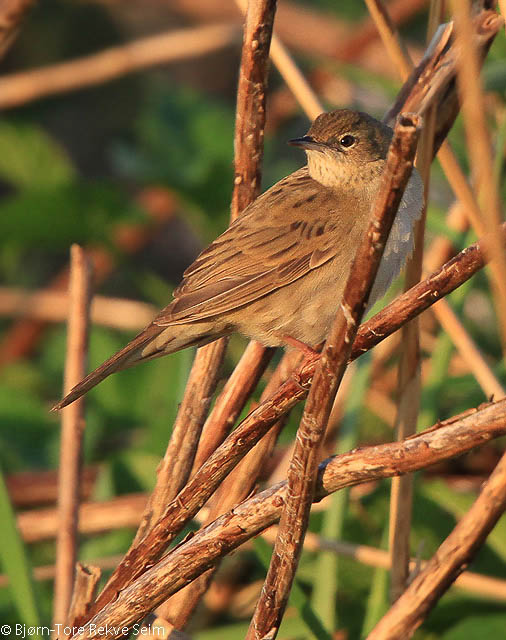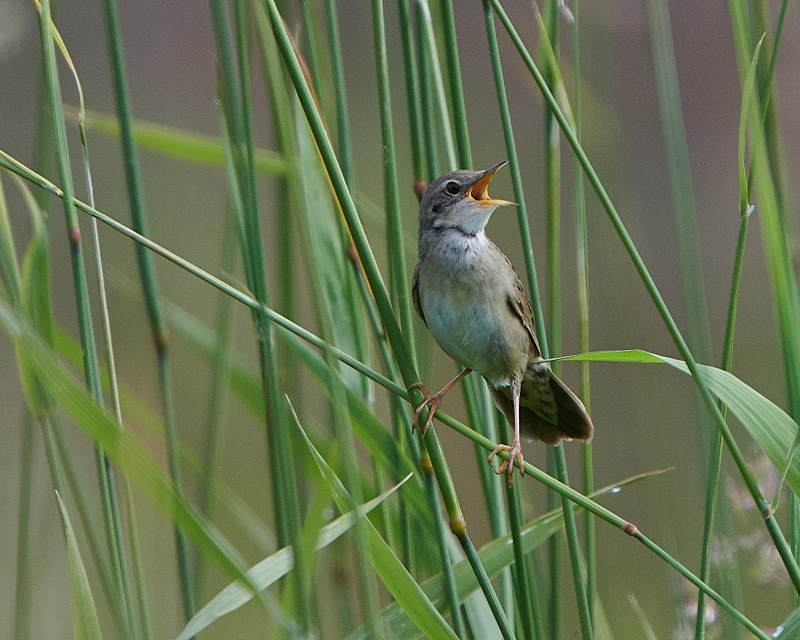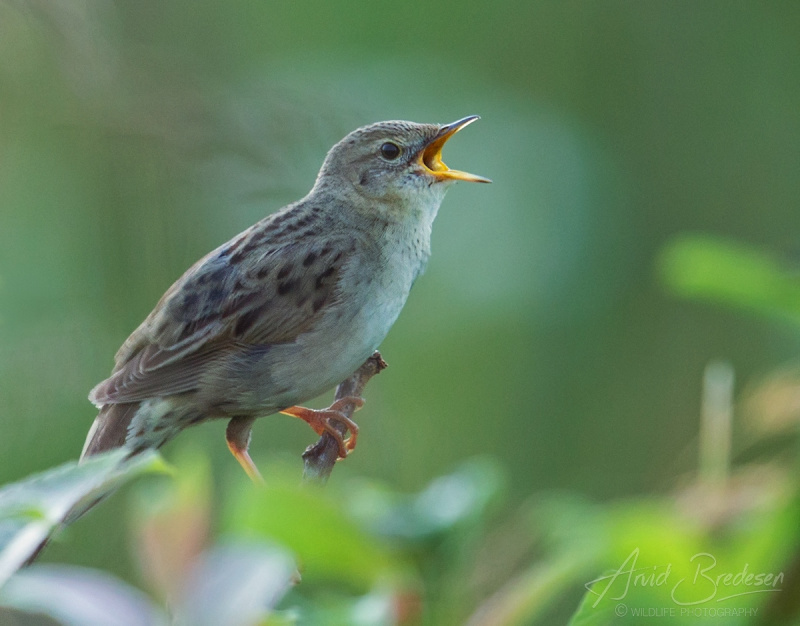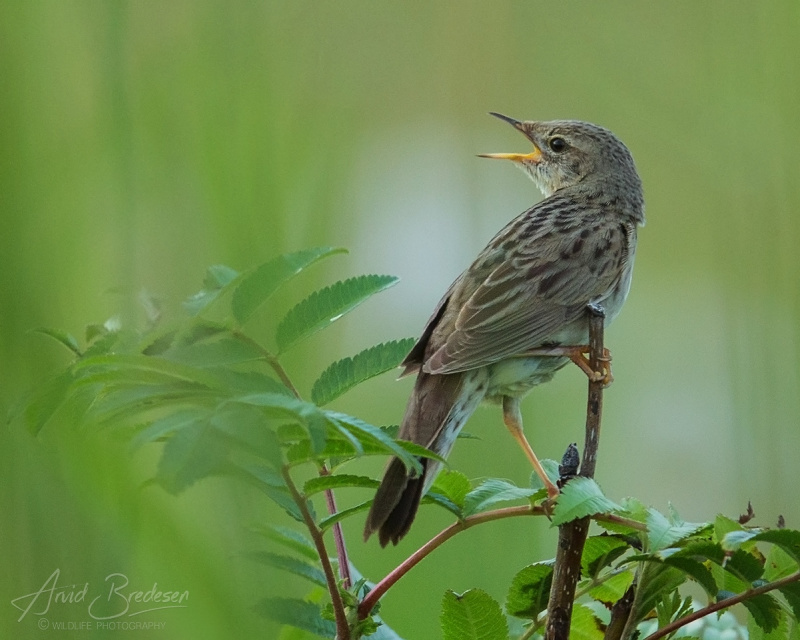Fieldfare (Turdus pilaris)
Grasshopper Warbler (Locustella naevia)
A large and long-tailed thrush. Slate grey lower back, rump and head. Brown upper back and yellow buff breast with dark spots. The all dark tail contrasts with the grey rump. Tail colour combined with white underwing distinguishes it from all other thrushes when flying. Flight undulated in long waves, with alternating glides and bursts of wing-beats.
Sound:Very vocal. Scolding call a hard "check", often given in decelerating series. Contact call in migration a soft, pleasant but, buzzy "weet". Song a mix of dry contact calls; "trrrt trrrrt", and high pitched, drawn out, chattering improvisations. Typically bursts into continuos, squeaky chattering at takeoff.
Contact call, song:
Distribution:
Wikipedia: map (se also Xeno-canto below)
Ecology:Birdlife ecology
Links:
Observation.org Latest observations
Image search Flickr NB! May give other species
CCAnonymously brown and dark brown warbler. Slender bill, short rounded wings and broad waist and tail. Base colour varies from olive-brown to yellowish buff. Streaking also varies from diffuse to marked, and is most prominent on sides of throat and upper chest. juveniles are more streaked than adults. Rufous/olive fringes to tertials are broader on outer side (as opposed to Pallas' Grasshopper Warbler). Secretive bird. Generally discovered by song.
Sound:Song insect-like and high-pitched. A monotonous stream of even clicks similar to a running fishing line. Maintained for seemingly endless periods, and often hard to locate. Song most similar to Savi's Warbler but is slower (each click more separated), and higher pitched with a metallic, ringing quality. Short sequences of song also functions as contact call. Also a Robin-like "tick".
Song:
Distribution:
Xeno-canto: map
Ecology:Birdlife ecology
Links:
Observation.org Latest observations
Image search Flickr NB! May give other species
CC
 English
English Albanian
Albanian
 Armenian
Armenian
 Bulgarian
Bulgarian
 Catalan
Catalan
 Croatian
Croatian
 Czech
Czech
 Danish
Danish
 Dutch
Dutch
 Finnish
Finnish
 French
French
 Georgian
Georgian
 German
German
 Greek
Greek
 Hungarian
Hungarian
 Italian
Italian
 Latvian
Latvian
 Lithuanian
Lithuanian
 Macedonian
Macedonian
 Norwegian
Norwegian
 Polish
Polish
 Portuguese
Portuguese
 Romanian
Romanian
 Russian
Russian
 Sami : Lule sami
Sami : Lule sami
 Sami : North sami
Sami : North sami
 Sami : South sami
Sami : South sami
 Scientific names
Scientific names
 Serbian
Serbian
 Spanish
Spanish
 Swedish
Swedish
 Ukrainian
Ukrainian


